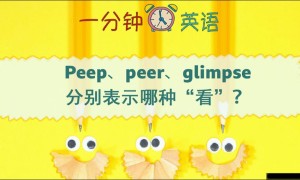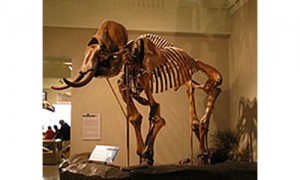It shot to fame with thanks to the BBC series Are Our Kids Tough Enough? Chinese School, which generated a heated debate in Britain and China about contrasts in the nations' teaching methods.
Now, its head teacher, Neil Strowger, is invited to conferences in China, while its students have had to get used to Chinese visitors peeking through their classroom windows. Some even greet the visitors with ni hao (hello in Chinese) and a friendly smile.
UK school in BBC show adopts Chinese learning methods
Despite its large appeal, Strowger says the BBC series was a sitcom more than a serious documentary, arguing that it "was produced as entertainment rather than educational research".
"The editing painted a very simplistic storyline: hardworking Chinese teachers battle poor behavior to ensure success in tests versus English teachers who are very student-centered but are 'too nice' and so lose," he says.
In the three-part program, five Chinese teachers taught 50 students for four weeks at Bohunt School. The finale ended with tests in which the students studying the Chinese method achieved marks about 10 percent higher in math and science compared with the rest of their year group, who were taught by their regular teachers in the English manner.
Strowger says genuine educational exchanges did occur between the Chinese and English teachers during filming but were deleted in the editing process. Teachers often observed each other's lessons, he says.
"They (the Chinese educators) would regularly come and talk to our teachers about, 'I'm really struggling with these students, what can you suggest?' So there was an awful lot of collaboration," adds Philip Avery, director of learning and strategy for Bohunt Trust, which operates the school.
As a result of the exchanges, teachers at Bohunt have adopted a wider range of methods, including those used widely in China.
The school has also readjusted the structure of its science department, with heads of department now overseeing the three disciplines - biology, chemistry and physics - rather than overseeing groups of students divided by age.
Learning curve
Aside from the final examinations in the program, which the BBC presented as a competition, the school has continued to track the progress of those students who took part.
The findings suggest better progress was made in biology under the Chinese method of teaching, while chemistry and physics were better in the traditional Bohunt style. Math was fairly even, with students on both sides feeling happier with the different methods.
Like most schools in Britain, Bohunt uses the inquiry method, where the onus is on the student to acquire information through asking questions.
"That works really well in chemistry and physics where they can do calculations and can run experiments," Avery says. "Biology, less so, as the students weren't going to understand anything from dissecting that they wouldn't have from a diagram."
The Chinese approach on the show was for teachers to take control of lessons and explain more in a focused way, which gets the information across quicker, he says. this gave the students more time to practice and go over things again when needed.
The collaboration went both ways, too: The Chinese teachers went away with wider strategies, while Bohunt took on board things such as the importance of "teacher talk" in lessons.
"We'd previously been rather nervous about seeing too much teacher talk in classrooms, and I think that's changed," Strowger says. "Our new learning and teaching policy says that in certain circumstances, rote learning and teacher talk, a more didactic approach, is absolutely fine."
Juan Cole, the school's head of Chinese, adds: "It was a really interesting experiment for us to see what works and what doesn't. Certain methods worked for certain students, and one of our teachers has started adjusting parts of the curriculum."
UK school in BBC show adopts Chinese learning methods
Naturally, the students were divided on which methods they preferred.
Philippa Murray, 15, was one of the young people who appeared in the BBC program. She says she found the Chinese teaching style enjoyable, especially when the class work became more challenging.
Of the Chinese math lessons, she says: "The way the teacher explained it was very detailed. For some people, they might have lost interest, but I was fine with it and very happy to keep listening to what the teacher was saying."
The year 10 student says the experiment affected how she sees education. "When I think back to the Chinese school, I appreciate how that taught me to treat myself better because I'm quite hard on myself when it comes to learning and when I don't get something right. I've learned how to deal with it now after being in that environment."
Scarlett Stevens, also 15, was less fond of the Chinese methods, however, especially the classroom competitiveness.
"The Chinese style was much more like a typical English college or university, like lectures and note-taking, which is much more common for a subject that you have chosen yourself, a single subject, whereas it was quite difficult doing that for five different subjects, just the same thing over and over again."
Stevens says she prefers the English way of discovery learning and finding out things for yourself rather than being told what the right answer is or what the right formula is.
Scoring success
The Bohunt experiment came after Shanghai students had consistently ranked best in math in the Program for International Student Assessment, which is issued by the Organization for Economic Cooperation and Development. By comparison, British students at the time ranked 26th.
The PISA ranking triggered global interest in Chinese methods and supplementary materials. Britain increased exchanges with Chinese teachers and schools to find out how to improve the quality of its schools.
UK school in BBC show adopts Chinese learning methods
Over the past 18 months, 127 math teachers from Shanghai have shared their experiences and skills in English primary schools. British educators say their techniques, such as spending more time on subjects and teacher-led explanation, have already had a positive effect.
"Most people are surprised at the way Shanghai performed on PISA because they thought, with rote teaching, it seemed likely that the students were to fare worse than others on tasks that require an application of knowledge and a problem-solving ability," says David Johnson, reader in comparative and international education at the University of Oxford.
That is a misunderstanding, he says. "It's not possible to solve problems and do inquiry learning without the necessary subject bases. Often things like inquiry-based learning are not always, across different countries, in the domain of the school, so many systems don't feel the need to make that a strong part of the curriculum."
China, which concentrates on establishing the basics, understands much better that young people are exposed to a number of opportunities both inside and outside school to think mathematically or to solve real-life problems in other ways, he adds.
"So how one balances out the twin demands of a good, strong knowledge base and sufficient opportunities to apply these to real-life problems is the important mixture."
Tim Ayres, head of biology at Bohunt School, is thinking hard about a good mix of different teaching methods.
"Nobody's going to change the world by being told stuff, they're going to change the world by developing ideas," he argues. "That said, if you look at the earlier years there's a huge emphasis on inquiry and practical (studies), teaching them (students) the skills and getting them engaged in science.
"As you move toward the final result, it does step up that lecture style and it also prepares them for A-levels, which will be a bit more lecture-style."
Wenzhou campus
The BBC program has not only brought fame for Bohunt, but also business opportunities.
The school's trust has signed a deal with Wenzhou Xinzhi Education Co to set up Wenzhou Bohunt International School, which is scheduled to open in 2018 and teach a Bohunt-style curriculum as well as offer GCSE and A-level examinations.
It will be the first time a state school in Britain has opened a private school in China. To date, more than 40 British private schools have established campuses in Asia and the Middle East, as demand for a British-style education continues to rise.
The exchanges between Bohunt and China also benefit its 1,500 students, one-fourth of whom are now learning Mandarin.
"The students are incredibly excited about Chinese culture, the history and traditions, but also in the youth culture," Avery says. "It's very difficult to bring across in rural Hampshire, which is not at all racially diverse. The exchange is fantastic."







